War and humanitarianism, medicine and public health, rights and justice... Discover CRASH publications sorted by themes.
The fact that CRASH publications are written from an aid practitioner's, rather than researcher's, perspective, does not exempt them from the demands of rigorous research methods. We try hard at this, with the help of (volunteer) research professionals. The publications are not the MSF party line, but rather tools for reflexion based on MSF's framework and experience. They have only one purpose: to help us better understand what we are doing. Criticisms, comments and suggestions are more than welcome - they are expected.
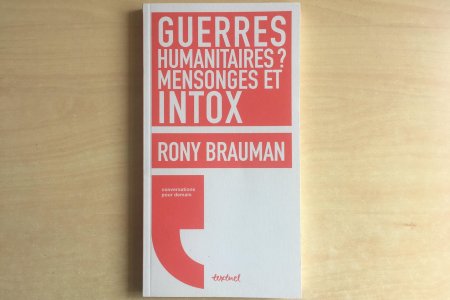 msf
Book
msf
Book
Humanitarian wars ? Lies and brainwashing
04/18/2019In the eyes of Rony Brauman of Médecins sans Frontières, wars are always triggered in the name of morality. Today’s “humanitarian” interventions are little more than new moral crusades – and their justifications are based on lies.
 Analysis
Analysis
Literature review on the evaluation of the quality of care from a patient’s perspective
02/15/2019The study The Patient Perspective of Quality of Care: A Review of the Literature, which we present here was carried out by Hannah Barnett a public health student at George Washington University, intern with CRASH from June to August 2018. This work sums up seventy articles from a variety of disciplines including medicine and public health. It is part of a reflection initiated by MSF a few years ago on medical quality and the patient-centered approach.
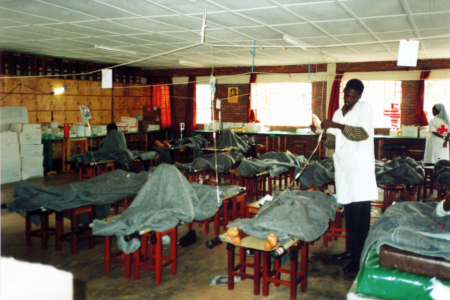 Xavier Lassalle/MSF
Review
Xavier Lassalle/MSF
Review
Book Review: Jean-Hervé Bradol and Marc Le Pape, Humanitarian Aid, Genocide and Mass Killings: Médecins Sans Frontières, the Rwandan Experience, 1982–97
02/05/2019This book describes and analyses the work of Médecins Sans Frontières (MSF) in the Great Lakes Region between 1982 and 1997. It explores the everyday, operational and political dilemmas faced by MSF staff in the field and the debates that followed, as they asked themselves: ‘how should we react and what action should we take’ in the wake of mass violence (p. 4). In effect, the authors ask: (how) could MSF prevent itself being manipulated or becoming complicit in the everyday atrocities in the field?
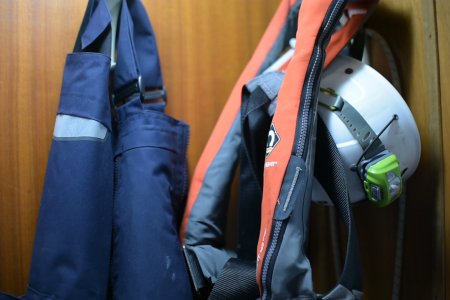 Ikram N'gadi
Op-ed
Ikram N'gadi
Op-ed
Sea Search and Rescue Operations Outlawed
Dont acte, la politique de harcèlement judiciaire, administratif, politique aura eu raison de l’Aquarius, déployé entre 2015 et le milieu de l’année 2018 en mer Méditerranée.
Tribune de Mego Terzian (Médecin, président de Médecins sans frontières) et Michaël Neuman (Directeur d'études au CRASH de MSF) publiée le 07 décembre 2018 dans Le Monde.
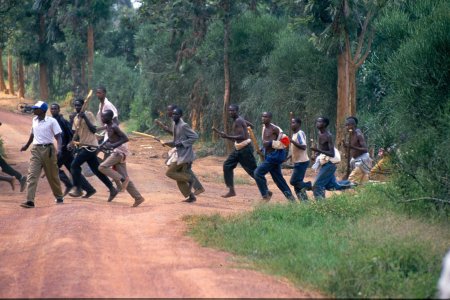 Roger Job
Review
Roger Job
Review
From War To Genocide: Criminal Politics in Rwanda 1990–1994; Humanitarian Aid, Genocide and Mass Killings: Médecins Sans Frontiéres, The Rwandan Experience, 1982–97
10/07/2018Although much has been written about the 1994 genocide in Rwanda, two recent volumes offer fresh perspectives and add considerable insights. Guichaoua’s From War to Genocide: Criminal Politics in Rwanda 1990–1994 takes the reader deep into the belly of the beast. The book describes and analyzes the real politics of the politics of genocide based on extraordinary detailed evidence with respect to the strategies and tactics of key military and political players. Bradol and Le Pape’s Humanitarian Aid, Genocide and Mass Killings: Médecins Sans Frontières, The Rwandan Experience, 1982–97 offers a unique understanding of the consequences of this murderous political game from the point of view of humanitarian aid workers in general and the NGO Doctors Without Borders (Médecins Sans Frontières – MSF) in particular.
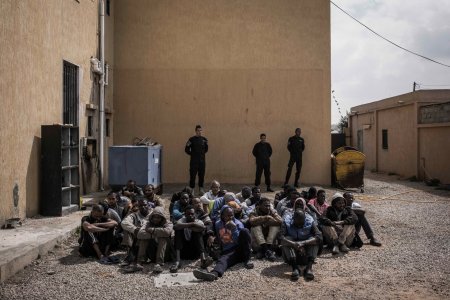 Guillaume Binet/Myop
Op-ed
Guillaume Binet/Myop
Op-ed
The state: from sieve to smuggler
09/10/2018Numerous politicians, from Daniel Cohn-Bendit to Marine Le Pen and including Emmanuel Macron, denounce what they claim is collusion between organisations helping migrants (humanitarian workers) and smugglers (criminals). One group operates in full public view, the other out of sight, but both are said to be working together to help people illegally cross borders.
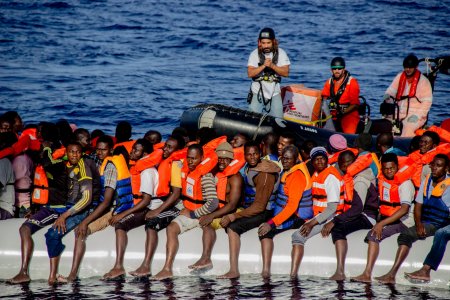 Borja Ruiz Rodriguez/MSF
Op-ed
Borja Ruiz Rodriguez/MSF
Op-ed
Humanitarian reasons versus political interests
07/11/2018Humanitarian organisations coming to the rescue of migrants in the Mediterranean Sea are kindly required either to watch them drown or to hand them over to human traffickers and torturers. We have seen countless political statements, opinion polls and editorials on the need to take a harder line against African migrants and accusing NGOs of being the accomplices of “smugglers”. We have even heard it said that these NGOs are organising the departures of those aspiring to migrate to Europe coincide with the presence of a rescue ship, making relief workers conscious actors in a criminal enterprise.
NGOs are not in collusion with smugglers
07/10/2018Humanitarian aid organisations carrying out rescues at sea were made into the accomplices of human traffickers. This accusation is as absurd as it is unacceptable. Not only do rescue operations at sea save people from drowning, but they evacuate people in situations of immediate danger in Libya, MSF recalls.
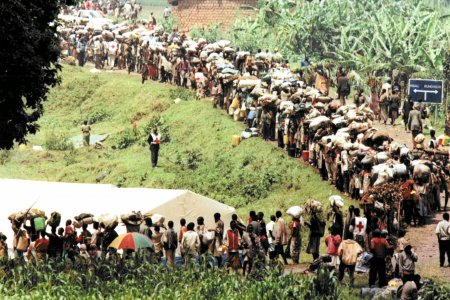 John Parkin
Opinion
John Parkin
Opinion
Debate: Judi Rever will not let anything stand in the way of her quest to document a second Rwandan genocide
06/06/2018Published in March 2018, Judi Rever’s investigative work, In Praise of Blood, quickly garnered international attention. It is an indictment of both the Rwandan patriotic front (RPF) and its leader, current Rwandan president Paul Kagame, and foreign governments and international institutions – the International Criminal Tribunal for Rwanda (ICTR), in particular – that allowed crimes committed against Hutu civilians to go unpunished.Judi Rever’s book is more than a work of investigation. It reads like a prosecutor’s closing argument: the massacres are described in such a way as to classify them as genocide. And it is precisely this combination of investigation and the pursuit of evidence that would stand up in a court of law that is problematic.
